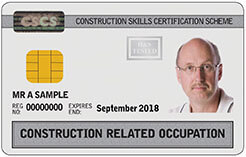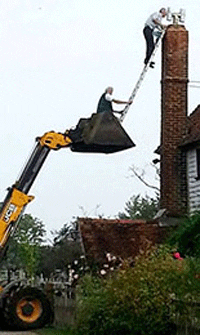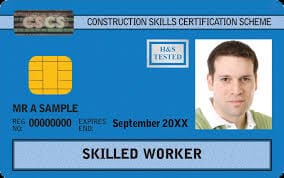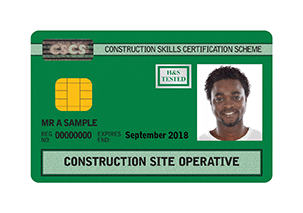It’s National Apprenticeships Week – and things are about to change. In this series of articles, we discuss the present position, the changes and the benefits they will bring to the UK workforce.
For decades, a consistent concern of employers, economists and Government has been the shortage of skills available to help drive the economy. Arguably, too many employers have regarded training as a cost, rather than an investment, preferring to recruit from outside, rather than develop the staff already working for them.
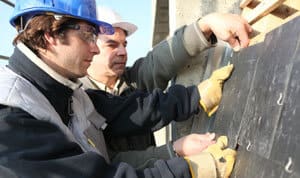
Earning Whilst Learning – A Major Benefit Of Apprenticeships
Whenever political debate takes place about immigration levels, the voices of those concerned about increasing pressure on public services are matched by businesses who need to maintain a highly skilled workforce. As Home Secretary, Theresa May argued to reduce immigration from outside the EU, only to find consistent opposition from Vince Cable at the Department for Business, Industry & Skills. Productivity in the UK is significantly lower than in many other countries.
There is no doubt that to keep the economy competitive in the 21st century, to build all those houses we need, to care for people in later life, to deliver the new medical treatments available – and to do this without continuing to depend on people coming from outside the UK to work here – we need to develop a highly skilled and really adaptable workforce from within the talent we have available inside the UK.
That is why fundamental changes to apprenticeships, developed by the Government and championed by Robert Halfon, Minister for Skills at the Department for Education, are so important. Equally important is the need for people, be they employers, existing workers, school leaders and parents of those presently at school, to really understand the changes and the opportunities they bring.
Apprenticeship training has undergone many changes over the years, but generally followed the pattern of workplace training, coupled with development of underpinning knowledge.
Perhaps this may be described as showing the “How” and teaching the “Why”. In this way a future Bricklayer inserts brick ties at regular intervals as he or she builds a structure under supervision on site, but is taught the physics that demonstrate their importance to structural integrity off the job.
Regular skills assessment and testing show what progress is being achieved and when the individual has completed the programme, they have a qualification that is portable and means exactly the same to their present, or any future employer. More importantly, their employer benefits from the greater productivity that worker will bring to the enterprise.

Apprentices Can Be Any Age – And Doing Just About Any Job!
Whilst the historical apprentice would most likely be found in a craft occupation, more recently the scope of apprenticeship training has broadened to encompass a far wider range of occupations covering every sector of the economy. At the same time, the age at which people undergo apprenticeships has broadened and the level of qualification being offered has grown as well. One of the most senior (in age, as well as position) staff in SuperSkills is presently undergoing a Higher Apprenticeship, giving her further skills which will equip her to manage the complex administrative tasks associated with a training business.
Whilst all these changes have had benefit, it has remained the case that people’s views about apprenticeships have not shifted very much. Mention apprenticeship to most people and they will have an image of a spotty youth, who is learning the basic skills of a craft-based trade. They will see an apprentice as somebody who is entering the business as a new starter, rather than an existing employee requiring skills development. Talk of “apprenticeship” will often bring a response “We’re not taking anybody on at the moment”.
The provision of apprenticeship training has also been variable in quality, employer focus and relevance.
The quality issue is of particular concern, with some establishments trying to manage large cohorts of learners, haphazardly planned sessions and poorly resourced delivery.
Employers have sometimes been given “take it or leave it” course schedules starting only in September, even though programmes are meant to be “roll on, roll off”. Little liaison with an employer has been frequent, with, in some case, issues about attendance or behaviour not being reported. Progress updates have not been forthcoming.
Relevance to the job skills required is crucial. As methods, processes and materials available change, so do training courses, so they reflect the “real” world. It is not unusual to find “legacy” issues listed as “mandatory” in course specifications. This is especially relevant where requirements for assessment include such issues and “inferring competence” (saying because a candidate can do “X” he/she must also be able to do “Y”) is not appropriate.
More worrying is the delivery of an inappropriate qualification because the provider cannot undertake the one most relevant to the business need. A few years ago we trained the bin collectors for a local council in the relevant Waste Management qualifications for their job roles. The previous training provider had insisted Customer Service qualifications were appropriate, simply because that was all they were able to offer. Polite bin collectors are all very well, but waste collection and disposal is, for obvious reasons, a highly technical occupation involving work on busy roads and dangerously unforgiving equipment. That’s why it is so important to get the training right.
Robert Halfon and his colleagues have seized upon all of these issues as they drive the reforms to apprenticeship delivery in England. They want to use apprenticeships as an engine for beneficial change, to people, employers and the economy. They want workers to gain the satisfaction of really having skills and qualifications that have prestige. They want employers to be in the driving seat and for training to meet the real needs of their businesses. They want a truly national effort, raising productivity through delivery of high quality training to the workforce.
(This is the first of Five articles about Apprenticeships being published to mark National Apprenticeships Week. Part Two will be published tomorrow)
It's National Apprenticeships Week - and things are about to change. In this series of articles, we discuss the present position, the changes and the benefits they will bring to the UK workforce. Scroll to see more. Read More...
Are You Ready?
SuperSkills has received notification from the CITB saying:

From 31st March 2017 the White Construction Related Occupations (CRO) CSCS card will no longer be issued.
This means you will not be able to obtain this type of card after 31st March and any cards that have been issued will expire on 30th September 2017.
The CITB think this will affect over 230,000 people who hold the White CSCS Cards.
The change is being made because the CITB consider this CSCS Card is being used by people who are actually skilled trades and who should have a different card.
Many of the people holding these cards will need to get the appropriate NVQ for their trade. Others will be transferred onto cards issued by one of the CITB’s partner schemes.
I’m on a White CSCS Card! What should I do?
If you think this applies to you or one of the people you employ click the link below that applies to your trade:
You will find all the information you need to get your NVQ and your new CSCS card.
If you are a Labourer but obtained a White card , see here.
If you are in another trade Click Here (opens in a new window) to be able to check out the CITB’s “card finder service” and make arrangements to get the new card sorted out.
Don’t forget – SuperSkills is always ready to provide FREE advice to help people make the right choice – whether you need an assessment we provide or just a helping hand!
To ask what you need to do, just give us a call on 01845 527445
CSCS "Construction Related Occupations Card is being withdrawn. Are You Ready? Scroll down for details, Fill in in the form or Call 01845 527445 for FREE Advice Read More...
Do You Need Your CSCS Health Safety and Environment Test?
We often say to people on the phone they should be careful when booking a CSCS Health Safety and Environment test.
That’s because some firms have set up just to “Book” the tests. They advertise the tests on Google and when people call them, all they do is go onto the CSCS Website to make the booking.
These companies charge a wholly unjustified “Booking Fee”. The CSCS have become so concerned about this, they have issued a warning – see here.
To get answers to ALL your questions about the CSCS Health & Safety Test, Click Here
The truth is, there is NO BOOKING CHARGE for the CSCS Health Safety and Environment Test online.
The CSCS charge £22.50 for the test Click Here To Go To Their Website
Candidates apply for their cards over the telephone to CSCS and will be charged £36.
If you are a Bricklayer, Carpenter, Dry Liner, Painter, Plasterer or Wall & Floor Tiler, we can help you get your NVQ Level 2 and “Skilled Worker” Blue Card. Just call 01845 527 445 for details!
Do You Need Your CSCS Health Safety and Environment Test? We often say to people on the phone they should be careful when booking a CSCS Health Safety and Environment test. That’s because some firms have set up just to “Book” the tests. They advertise the tests on Google and when people call them, all they […] Read More...
Another Wednesday, another Prime Minister’s Questions session in the House of Commons. This week, Jeremy Corbyn chose to lead with questions on the “Housing Crisis”.
I sometimes feel sorry for politicians – they live in a world where everything is a “crisis” when they are not in Government and then everything must be regarded as perfect when they are. However, there is no doubt about the impact of not building enough houses – prices keep going up and rents follow.
It is said that if you get three economists together and ask them a question, you will get three different answers, each one of which will be intellectually robust and well reasoned. There is, however, one exception. They will always agree that demand outstripping supply will cause prices to rise. That is why house prices and rents have kept on growing, decade after decade.
All this makes me wonder why Governments – of whichever political colour – keep creating policies that will impact on the demand side of the housing market. Everybody wants young people to be able to buy their home, or live in a decent rented house or flat that meets their needs. But “Help To Buy”, “Shared Ownership” and similar schemes stimulate demand. That always increases prices. Increasing prices also stimulate demand, because people rush to get onto the ladder before prices go up even further.
The only time Government has reduced demand was just at the start of the last recession. That time Gordon Brown “let it be known” that he was contemplating a “Stamp Duty Holiday” to try and reduce the spiralling price of houses. It was a singularly ill-judged move, because purchase transactions up and down the land were halted as people (or rather their Solicitors) stopped exchanging contracts whilst they waited to see what would transpire. There are those who argue this actually caused the housing price bubble to burst. I don’t know whether that is correct, but it is certainly the case that sales dried up and were down by over 60% for the next two years.
The real problem was that house builders stopped building, workers got laid off and things only started really getting going again in 2012.
And that’s the problem with the housing sector. It runs hot and cold. Builders are either flat out, or wondering how the next pay day salaries are going to be settled. In turn, this has led to the construction sector being made up of self-employed people working for developers, rather than as employees. That practice is so widespread, HMRC have created the “Construction Industry Scheme” so people have there tax administered under the “CIS” arrangements.
All of this leads to a workforce that is distant from the employer. This leads to a lack of training and therefore to a lack of skills. Even politicians will agree there is a real shortage of construction workers and whilst Ministers will always tell you about the number of Apprenticeships they have created (for which they should be proud) they get a bit tongue-tied when you ask about Bricklayers, Carpenters and Plasterers (or any other construction trades).
Presently, as a nation, we are running behind the house building requirement by about 150,000 houses a year. That means we are not even meeting the present demand for houses, let alone keeping up with growth. Without the massive influx of workers from elsewhere in the European Union we have seen over the past decade, we wouldn’t even be delivering that many houses. (And yes, I do see the irony in people moving to this country to build houses and deal with our shortage when – they will need houses to live in themselves………)
The reality is that we need to get a grip on the delivery of skills to the workforce. To get youngsters to understand there is a well-paid future in a trade. To re-skill people leaving other industries. Increasing the workforce is a supply-side measure, which will increase the construction sector’s capacity. so we can meet the challenge that housing our people has become.
I sometimes feel sorry for politicians – they live in a world where everything is a “crisis” when they are not in Government and then everything must be regarded as perfect when they are. Read More...
…………….You should never be hostage to “Social Media” reviews
Here at SuperSkills, we do everything we possibly can to try and make our customers have a great experience. Most of them really don’t want to be here anyway, but getting their CSCS Cards and NVQ certificates is pretty much mandatory what with the requirements of construction sites and companies – and that’s before the Insurance Companies want to see some proof that staff are qualified, otherwise they may refuse to cover you.
So, Suzy, Julia, Eleanor & Mel are really used to the person on the phone asking about a qualification turning out to be a 56 year old Bricklayer, who has been working perfectly well for forty years, who can lay umpteen bricks a day without breaking stride and who is deeply unimpressed with having to demonstrate his skills to get his NVQ.
However, their knowledge of what is required, the respect they show for trade skills had-won by years of site work and outstanding levels of helpfulness (and that’s not me saying that – it’s the customers) soon settled people down, calm their nerves and get them on their way to obtaining the right “Skilled Worker” CSCS Card.
Once people arrive at SuperSkills for assessment, that level of service continues. Pick-ups from the railway station are routine, tea and coffee is in never-ending supply and our assessment staff do everything they possibly can to make sure the whole process is quick, simple and convenient. To avoid complacency, we survey every customer at the end of their programme and it is unusual for somebody not to meet either myself or Suzy, because we know as business owners, it is essential to see for yourself that all is going well.
But SuperSkills has another – really important – responsibility and that is to the CITB. We are the guardians of their qualifications. To achieve NVQ Level 2 in a trade, you have to be able to demonstrate the relevant skills and capabilities to a level set out in the qualification. It is in nobody’s interest to fiddle the process. Apart from anything else, when someone’s on a site, do they want to be working alongside a so-called trade who is simply not up to the job?
This applies in particular to people who enquire about taking a qualification via the “Experienced Worker Practical Assessment Route“, for which SuperSkills has a well-deserved high reputation across the country. There is no point in getting somebody to pay good money and travel to our place in Thirsk, Yorkshire, if we do not think they have the right experience to be successful using the “Fast Track” route to their NVQ.
For example, you need to have at least Five Years general site experience in a trade to access the “Experienced Worker” route. Even then, you need to be able to get the evidence from your workplace that will substantiate your skills. We get loads of calls from people who are just not experienced enough to undertake the assessment. On Site Assessment and Training is what they need. However, there are those who are disappointed when we tell them this and occasionally, they are – to put it mildly, “less than polite”.
Normally, we listen, explain and everyone moves on. However (and such a case happened recently) someone will threaten to give adverse reviews on the internet simply because we did not think they were ready for assessment and that’s a bit worrisome. Not just for us, but for many other businesses in the Service Sector of the economy.
I’ve even had the rather strange experience of somebody who had completed their assessment successfully and when it came time to pay, demanded a discount, otherwise he would give SuperSkills adverse reviews. (It’s actually quite hard to remain polite under those circumstances.)
Charlie Mullins, of Pimlico Plumbers echoes this experience in his Blog, which describes the “Wild West” that many review sites have become. There are particular issues in some sectors of the economy, where trade is gained and lost through inaccurate (and sometimes downright malicious) reviews. TripAdvisor and Amazon have also been subject of fake “reviews” designed to push business in a particular direction.
So, overall, like any other aspect of business, you trade in the circumstances that prevail and you hope that potential customers have the common sense to recognise you’re providing a service that may or may not be the right one for them. However, I would always prefer to see a customer get what they need elsewhere, rather than try and get them to come to SuperSkills on a programme that isn’t right, or for which they simply don’t have the right experience.
…………….You should never be hostage to “Social Media” reviews Here at SuperSkills, we do everything we possibly can to try and make our customers have a great experience. Most of them really don’t want to be here anyway, but getting their CSCS Cards and NVQ certificates is pretty much mandatory what with the requirements of construction sites […] Read More...
……..But Somebody Manages To Win!
“Biggest Idiot On A Ladder 2014 Announced!
Once again the Ladder Association has looked through the many thousands of photographs sent in during the past year of the ludicrous way in which people use ladders.
This year, the winner of their annual “Biggest Idiot On A Ladder” prize is awarded to two men who can’t be bothered to rent scaffolding to repair a chimney.
Look at the picture and try to count the number of incorrect choices they made along the way.
As Charlie Mullins, the owner of Pimlico Plumbers likes to say “It’s just common sense – the only problem is, it ain’t that common!
……..But Somebody Manages To Win! “Biggest Idiot On A Ladder 2014 Announced! Once again the Ladder Association has looked through the many thousands of photographs sent in during the past year of the ludicrous way in which people use ladders. This year, the winner of their annual “Biggest Idiot On A Ladder” prize is awarded to […] Read More...
A letter published in today’s “Telegraph” newspaper under this title – see here – from leaders of construction businesses across the country warns of the dangers that come from Britain apparently distancing itself from actions on climate change.
In recent months, there has been some adverse comment about the impact renewable energy technologies are having upon the environment. However, the Government has remained committed to delivering the nation’s global warming treaty commitments. What has changed is that onshore wind farms are likely to receive planning consent where there are local objections in the future.
This is understandable, given the visual impact the structures have. However, continued attention is being paid to the need for more effective insulation of existing properties and the development of new homes with far better energy performances.
The most recent report from the Intergovernmental Panel on Climate Change has warned (Sunday 2 November 2014) that it may be necessary to completely eliminate the use of fossil fuels by the end of this century if massive climate change is to be avoided.
The business leaders can also see the way in which Britain’s businesses may benefit from the development of environmentally beneficial technologies, using the nation’s research base to create new solutions and sell them across the world.
There are those who consider the opinions expressed by scientists on the subject of the environment to be flawed. However, the weight of opinion is on the side of those who think man made climate change is having an adverse impact on the planet.
At the individual level, I suspect the benefits of reducing the amount of money spent on expensive energy bills has its own attractions.
A letter published in today’s “Telegraph” newspaper under this title – see here – from leaders of construction businesses across the country warns of the dangers that come from Britain apparently distancing itself from actions on climate change. In recent months, there has been some adverse comment about the impact renewable energy technologies are having […] Read More...
We get asked for information about CSCS Cards regularly

CSCS Cards – An Essential Tool In Your Box!
– and it is usually by people who have been in the trade for many years and have excellent skills, but suddenly find they cannot get on sites or work for Local Authorities because they don’t have the right CSCS Card. In addition, there are also insurance companies that are requiring people to have trade qualifications when they renew their public liability insurance.
The CSCS Card ( the initials stand for “Construction Skills Certification Scheme”) bears your name and photograph and on the back it has the qualifications you have attained.
Most sites will want you to have the Blue “Skilled Worker” CSCS Card, although there are temporary, trainee and provisional cards that will enable people to get qualified whilst they are working. In addition, other cards cover Supervisors (the Gold CSCS Card), managers – even site visitors.
What the CSCS Card scheme does is enable an employer or site manager to tell at a glance that the worker has passed a recognised trade qualification and also they have been assessed as understanding the basics of safety in construction.
When you bear in mind just how many people get injured or killed during construction work every year, or who suffer long term injuries and disabilities to their breathing, hearing or their backs, it is not surprising that tighter regulation has been put into place and the requirement for people to have a CSCS Card has emerged.
How do I get a CSCS Card?
Another “frequently asked question” which we always answer in two ways – firstly “Quite simply” and then by asking “What Trade do you need the CSCS Card for?” That is how we determine which card you need.
If you are starting out in construction and are going to be an Apprentice, for example, you will get a RED “Trainee” CSCS Card. As your skills progress and you complete the Apprenticeship framework and get your NVQ Level 2, you will be able to apply for the “Skilled Worker” Blue CSCS Card. If you have Three Years Experience in construction, you can go through On Site Assessment & Training to get a Level 2 NVQ, whereas people with Five Years Experience can often go through the Experienced Worker Practical Assessment Route created by CITB-Construction Skills to avoid people who do not require a lot of training to get their qualifications and CSCS Card quickly.
Please Note – You need the NVQ element of the qualification, which must include assessment of your work in the workplace. Just taking a Level 2 Diploma course in a training school is NOT an NVQ and will not get you the Blue Card. It is not at all unusual for us to get called by people who have spent a lot of time and money getting a Diploma and then finding they cannot get the right CSCS Card. Always check you have been registered for an NVQ. Never assume that you can be assessed after completing the course – many places say they will do this, but have a mileage limitation on their service.
Taking The CSCS Card Test
We offer a one-stop shop service at SuperSkills, so you will take the CSCS Card test whilst you are with us. It is simple and there are no “trick” questions. There is an App which contains the questions and answers so you can practice. I always say to people – imagine you are on a large building site, with plant and other equipment moving around and lots of people working. Read ALL of the question, read ALL of the answers and then apply logic. The test is about Health, Safety and the Environment. It follows that you are looking for the Healthiest, the Safest or the most environmentally friendly answer. If what the worker in the question is being asked to do is unsafe, or they haven’t been trained to do it, the answer is “Don’t do it”.
You have plenty of time. Most people will take about half the forty five minutes allocated.
There is no set “Pass Mark” since the test changed in 2012. The system is looking at your knowledge of the subject. Get every answer right except three questions on signs – you will fail. That’s because you don’t know enough about signs. However, the three things that make most people fail (provided they have revised for the test) are Rushing, not Reading the questions and answers properly and (I regret to say) not Telling us they may have a problem with reading, so may need to use the Headphones.
What will it cost?
The basic cost of the test is £21.00. You Should Always Book Your Test Direct Online Click Here The reason for this is there are people who advertise the tests, but just book people in to them. They can charge up to £45.00 for a test.
We hope that helps you understand how the testing system works. Once you’ve got your test arranged, if you need to get your NVQ and skilled worker CSCS Card, you can call SuperSkills on 01845 527445.
You can see all our NVQ Assessment programmes here.
We get asked for information about CSCS Cards regularly – and it is usually by people who have been in the trade for many years and have excellent skills, but suddenly find they cannot get on sites or work for Local Authorities because they don’t have the right CSCS Card. In addition, there are also […] Read More...
Are You Ready?
SuperSkills has received notification from the CITB saying:

From 1st July 2014 the green Construction Site Operative (CSO) card will no longer be issued.
There will be a new green CSCS card only available for people working in labouring occupations.
They go on to say:
“CSCS is a scheme for the construction industry that confirms site workers’ training and qualifications.
Many site workers who are carrying out skilled occupations have been applying for the green CSO card as the easiest route to gain access to construction sites.
This makes it difficult for contractors to use CSCS cards as a reliable method of checking that site workers have the appropriate skills to work on construction sites safely and effectively.”
This has implications for Employers and Trades alike and SuperSkills has already applied to CSkills Awards – CITB to make sure that people coming to us will be able to take their tests and get their cards after 1st July 2014.
If you work in a labouring occupation you can apply for the new green Labourer card. You will need to:
Provide evidence that you have achieved one of the following:
Level 1 Award Health and Safety in a Construction Environment – This is what SuperSkills will be offering
or
CIEH Level 2 Award Health and Safety in the Workplace
or
One day Site Safety Plus Health and Safety Awareness Course
So – If you think this applies to you or one of the people you employ, have a look at the list shown above and make arrangements to get the new card sorted out.
Don’t forget – SuperSkills is always ready to provide FREE advice to help people make the right choice.
To ask what you need to do, just give us a call on 01845 527445
Are You Ready? SuperSkills has received notification from the CITB saying: From 1st July 2014 the green Construction Site Operative (CSO) card will no longer be issued. There will be a new green CSCS card only available for people working in labouring occupations. They go on to say: “CSCS is a scheme for the construction industry that […] Read More...
I’ll start by declaring an interest. I’ve never been persuaded by people who do “the vision thing”. I’ve always preferred those whose results bear testament to the “action” thing.
I expect it’s because I’m a bit ambivalent to the “Goal Setting” model of personal planning and self-development. This attitude probably stems from never setting a “Goal” about being married, but ending up happily married for the last thirty years.
I know people who live by their plans, timetables and action points. It seems to me there is a fair amount of bureaucracy involved in all the measuring they do. However, it keeps them happy, active and (presumably) out of trouble. I’m not sure they get better results as an outcome of all the effort, but I’d never criticise them for trying.
My approach seems to have been supported by my work experience as well. I suspect that if you work in an emergency service for most of your life as I did, you should expect to have your day disrupted by “stuff” happening which requires immediate attention. You have to change whatever plans you had at a moment’s notice. But even at SuperSkills, there are days when the immediate issue takes precedence over what was originally my intention as that day’s activity.
So this is why I tend to have a longer term view about how the business progresses and I’m going to share that approach with you. Try it if you like and if it works out, that’s fine. My only recommendation is that it works for me.
The “Goal Setters” will be using their time as the old year draws to a close and the new one begins to fire up the Excel spreadsheet, open up the Filofax, tap on the Tablet screen, whatever, to start setting out their Goals for success in 2014. There will be Milestones, Weekly Activities, Daily Achievements and probably hours of work involved.
Here’s my alternative. Think of what “success” in your own business looks like. If you’re a self-employed painter and decorator, that will be different to having an employed workforce. If you have shareholders, different again. If you have premises or business loans, the picture changes once more. The other variable is your ambition. Happy to be “steady away” with a balance between home life and the business? That’s different from wanting to achieve significant growth. Now hold that thought.
If it’s to be “steady away” or “significant growth”, think of what happened in 2013. What made success happen? What could have been better? Do more of the first and stop the second happening again. Simple.
An example. In 2013, SuperSkills did very nicely thank you – but nearly all of the business came from enquiries on the Internet and of those, 95% (I’m not kidding) were from one particular source. So 2014 has to be about changing that balance. The “Goal Setter” will set a target, then undertake activities that are meant to contribute to it. Me? I’ll undertake this as continuous activity. Changing the balance will be my default activity when I’m not doing anything else. I’ll know what success looks like because of the type of enquiries we get.
The second thing will be customer satisfaction. We get astonishingly good feedback from our clients on a consistent basis. Having achieved that, we need to work at the top of our game to keep the same results. Our best advertisements are the people we have helped, but we can do more to harness the asset of goodwill.
There’s another thing I do as well. Every so often, I take a good hard look at what I do whilst working. I put a “sales” value on it. These days, it’s quite easy to get sucked into checking email, or “@SuperSkills” (the company Twitter feed), “having meetings” or any one of the other pursuits that can take up the day when you are your own Boss. Sometimes, I look back at the end of the day, every day for a week or a fortnight and ask the simple question – “How much money did that generate in Sales?”. Try it – but be prepared for a salutary lesson!
That’s why, in 2014, I’ll carry on being a “Go Getter” rather than a “Goal Setter”. Constant activity, continuous improvement. Sales + Service = Sales.
Which one will you be? Whatever it is – all the best for 2104!
I’ll start by declaring an interest. I’ve never been persuaded by people who do “the vision thing”. I’ve always preferred those whose results bear testament to the “action” thing. I expect it’s because I’m a bit ambivalent to the “Goal Setting” model of personal planning and self-development. This attitude probably stems from never setting a […] Read More...


